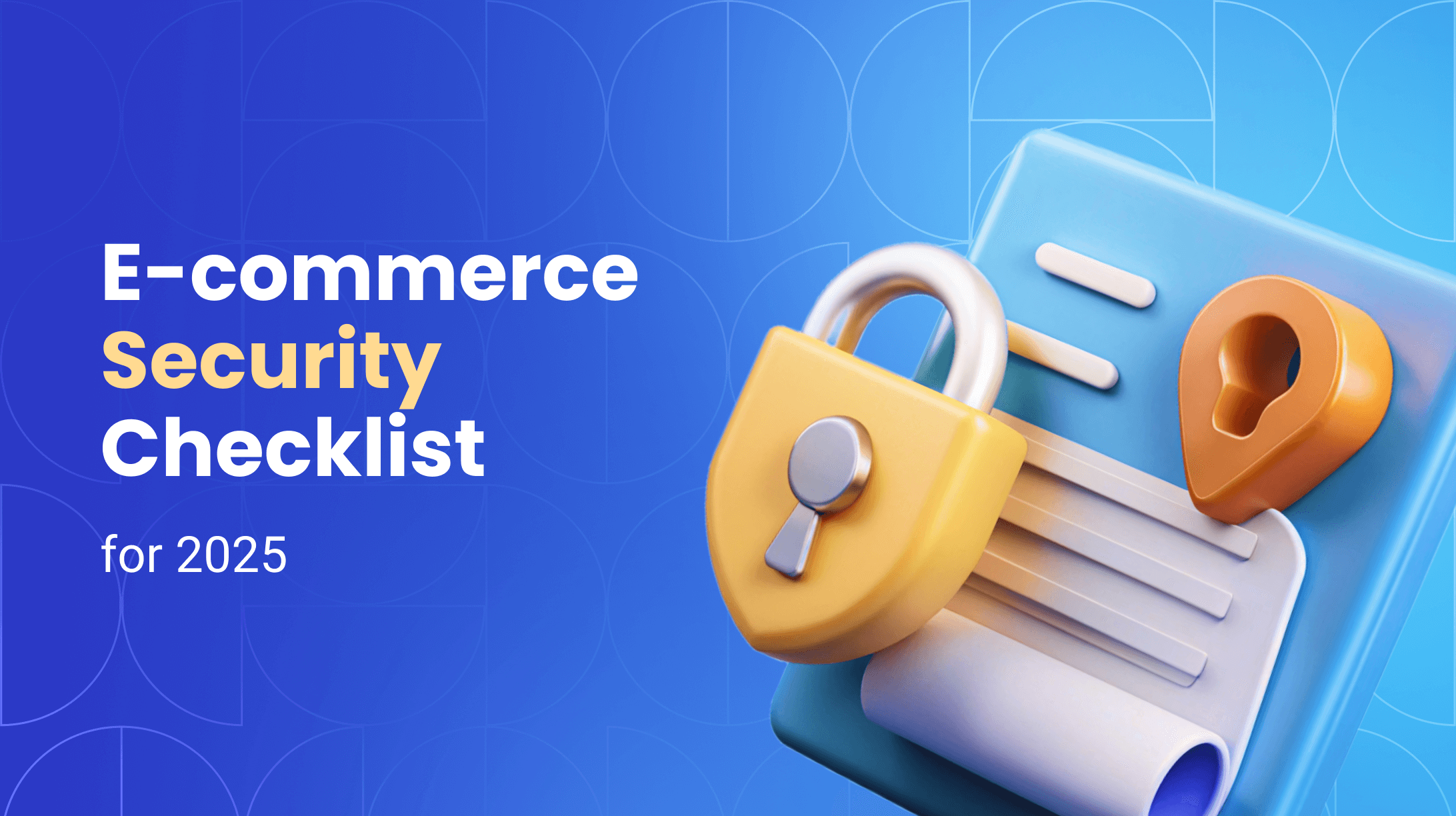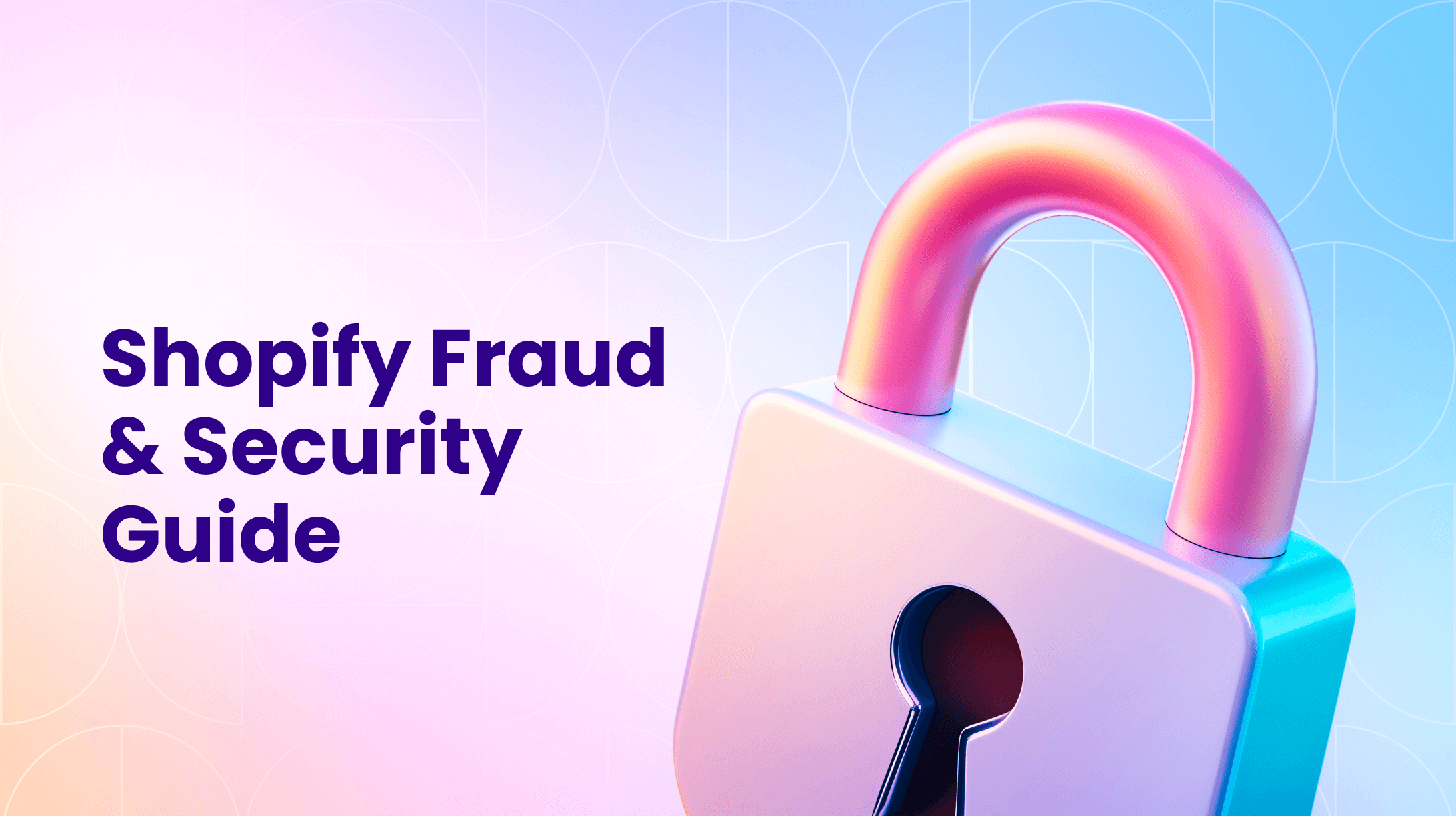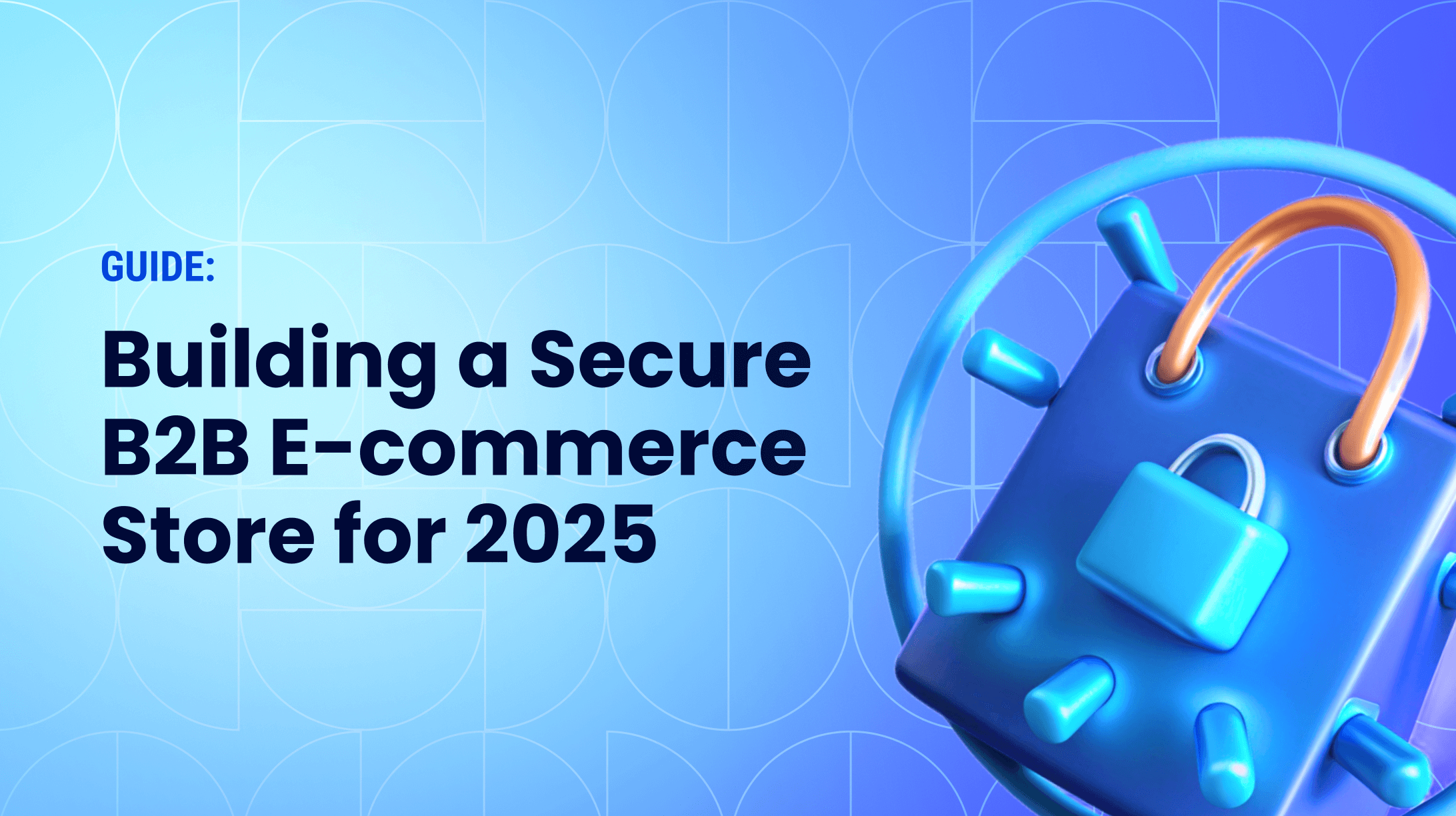0%

According to Statista, online payment fraud losses are projected to surpass $100 billion by 2029. As cyber threats grow increasingly sophisticated, businesses face heightened risks from AI-powered phishing, payment fraud, and data breaches, often due to outdated security measures. Enhancing your strategy with effective e-commerce web development services is more important than ever.
This guide delivers a step-by-step checklist to strengthen your e-commerce website in 2025, so you can defend against current risks and prepare for future threats.
What is E-commerce Security?
E-commerce security refers to the measures and protocols implemented to protect online transactions and customer data from unauthorized access, misuse, or theft. It encompasses a variety of practices aimed at safeguarding the digital environment in which e-commerce activities occur.
Key components of e-commerce security:
- Encryption – Ensures data is only accessible to authorized parties, using techniques like SSL/TLS to secure data transmission.
- Authentication – Verifies the identities of users and systems, often through passwords, two-factor authentication, or biometric verification.
- Data Integrity – Protects data from being altered during transmission, ensuring the information received is the same as what was sent.
- Payment Security – Utilizes secure payment gateways and protocols to protect payment information from fraud.
- Access Control – Limits access to sensitive data and systems, ensuring only authorized personnel can access specific information.
- Regular Security Audits – Involves periodic reviews of security protocols to identify and rectify vulnerabilities.
- Compliance with Standards – Adheres to legal and industry standards like PCI DSS to ensure proper security measures.
- Fraud Prevention – Implements tools and techniques to detect and prevent fraudulent activities.
- Cyber Threat Monitoring – Constantly monitors for suspicious activities or potential threats to proactively mitigate risks.
Why is Online Security Important for Your Website?
Strong online security protects your website, its users, and its data while it maintains a trustworthy and reliable online presence.The system blocks hacking and phishing attempts with encryption and secure authentication protocols. Strong e-commerce security solutions help maintain user trust, support compliance with regulations, and enhance business resilience.
Key reasons to prioritize security for e-commerce website:
- Shields Customer Data – Defends personal and financial information from breaches and unauthorized access.
- Strengthens Trust – A secure site proves reliability, which increases customer confidence and loyalty.
- Avoids Financial Loss – Blocks fraud, ransom attacks, and costly breaches.
- Preserves Reputation – Prevents brand damage, customer loss, and negative publicity.
- Maintains Operations – Stops cyberattacks that disrupt business and sales.
- Meets Compliance – Follows GDPR, PCI DSS, and other standards to avoid fines.
- Deters Hackers – Strong security measures lower attack risks.
- Boosts SEO – Secure sites rank higher in search results.
- Secures Business Data – Protects against data loss or corruption.
Common Cybersecurity Threats for E-commerce Website
Websites face serious e-commerce security threats that risk data and disrupt sales. Strong security stops them. Let’s look at the key risks:
Phishing Attacks
Cybercriminals craft convincing emails or set up fake websites that mimic legitimate organizations to deceive users into revealing sensitive information like passwords or credit card details. These attacks often play on urgency or fear, tricking users into hurried responses. Training employees and customers to recognize these threats is key to prevention.
Malware
Malicious software such as viruses, worms, and ransomware can infiltrate systems, leading to data theft, corruption, or unauthorized access. Hackers often spread malware through downloads or malicious links. Regular updates and antivirus software are essential defenses against these threats.
SQL Injection
Attackers exploit vulnerabilities in a website's database by inserting malicious SQL commands, manipulating or stealing critical data. This can lead to unauthorized data exposure or even total system compromise. Employing parameterized queries and input validation helps guard against such breaches.
DDoS Attacks
Distributed Denial of Service attacks flood a website with excessive traffic, overwhelming its resources and causing slowdowns or complete outages. These attacks can disrupt business operations and deny service to legitimate users. Implementing traffic filtering and load balancing mitigates the impact of DDoS attacks.
Cross-Site Scripting (XSS)
Attackers inject malicious scripts into web pages, exploiting vulnerabilities to steal information or execute harmful actions on behalf of users. These scripts can capture cookies, session tokens, or other sensitive data. Utilizing content security policies and input sanitization are effective defenses.
Man-in-the-Middle (MitM) Attacks
These attacks intercept and possibly alter communications between a user and the website, allowing attackers to eavesdrop or modify data. This can lead to the theft of personal information or financial data. Encryption protocols like SSL/TLS are crucial in protecting data integrity and confidentiality.
Get in touch
with our expert
Discuss your project requirements and get a free estimate.
Get in touch
with our expert
Discuss your project requirements and get a free estimate.
E-commerce Security Best Practices for 24/7 Protection
Implement robust security measures to ensure continuous protection for your e-commerce website. These strategies help safeguard against potential threats and vulnerabilities.
1. Use SSL/TLS Encryption
Implement SSL/TLS certificates to encrypt data transmitted between users and your website, enhancing e-commerce data security by protecting sensitive information from interception. This encryption ensures personal and financial data remain secure, boosting customer trust and ensuring data integrity.
2. Choose Secure Payment Gateways
Utilize reputable payment gateways that comply with PCI DSS standards to ensure e-commerce payment security. These gateways offer fraud detection and prevention features, securely processing credit card payments and reducing the risk of financial fraud.
3. Enable Two-Factor Authentication (2FA)
Strengthen e-commerce cyber security with two-factor authentication for user accounts. This method requires a second verification step, like a text message code, which increases account security and blocks unauthorized access.
4. Conduct Regular Security Audits
Perform regular security audits as part of e-commerce security best practices to identify and address vulnerabilities in your website's infrastructure. These audits help in proactively detecting weaknesses and ensuring all systems are updated and compliant with the latest security standards.
5. Deploy Web Application Firewalls (WAF)
Deploy web application firewalls as a key component of e-commerce security services to filter and monitor HTTP traffic between your website and the internet. A WAF helps protect against threats like SQL injection and cross-site scripting, providing a robust defense against malicious attacks.
6. Ensure Secure Hosting
Select a reliable hosting provider that offers secure hosting solutions, incorporating strong security features such as backups, DDoS protection, and server monitoring. Secure hosting ensures your store remains online and accessible while protecting against unauthorized access and data breaches.
E-commerce Website Security Compliance Considerations
Security standards safeguard your e-commerce site and preserve customer trust. Prioritize these key compliance requirements:
- Payment Card Industry Data Security Standard (PCI-DSS) – Any entity processing credit card transactions must comply with PCI-DSS standards. These guidelines protect credit card information from storage through to checkout, minimizing the risk of data breaches.
- General Data Protection Regulation (GDPR) – The GDPR, enacted by the European Union, protects personal information of EU citizens. It applies to any business selling to EU residents, even those located outside the EU, ensuring strict data privacy controls.
- California Consumer Privacy Act (CCPA) – Specific to California, the CCPA mirrors GDPR principles, providing strong privacy protections for California residents. It represents the most stringent data privacy regulation currently in the U.S.
- Australian Privacy Act (APA) – The APA dictates how Australian businesses handle personal data, impacting any business collecting data from Australian citizens. Compliance ensures adherence to privacy rights and information protection.
- ISO/IEC 27001 (Information Security Management) – A global security standard focusing on data protection through risk management. E-commerce businesses can achieve certification by integrating an ISMS, conducting routine audits, and following data protection best practices.
- ISO/IEC 27701 (Privacy Information Management) – This standard extends ISO/IEC 27001 to encompass privacy management, offering a framework for safeguarding personal data. Compliance involves ensuring privacy standards are consistently applied and conducting privacy audits.
- ISO 22301 (Business Continuity Management) – This international standard helps businesses resume normal operations post-disruption, such as cyberattacks. Compliance requires developing and testing a BCMS, ensuring continuous operation plans are in place.
- SOC 1, SOC 2, and SOC 3 Compliance – SOC standards assess customer data management related to financial reporting (SOC 1) and security (SOC 2). SOC 3 provides a public assessment report. Cloud-based brands should follow SOC compliance to secure customer data effectively.
3 E-commerce Security Success Stories
E-commerce businesses must navigate the complex landscape of cybersecurity to protect their operations and maintain customer trust. Here are three real-world examples of companies that effectively managed and overcame security threats:
1. Amazon: Fortifying Against DDoS Attacks

In 2020, Amazon successfully mitigated one of the largest DDoS attacks recorded. By leveraging their in-house cybersecurity team and sophisticated DDoS protection tools, they were able to keep their services running with minimal disruption.
- Lessons Learned – Invest in advanced, scalable security infrastructure to handle large-scale attacks.
- Strategies Applied – Use of AWS Shield, a managed DDoS protection service, along with continuous monitoring to identify and neutralize threats swiftly.
2. Shopify: Protecting Customer Data

Shopify has consistently focused on data security, especially during significant sales events like Black Friday. They implemented robust encryption protocols and security audits to protect transactional data.
- Lessons Learned – Regular security audits and encrypted transactions are crucial for maintaining customer trust.
- Strategies Applied – Adoption of PCI DSS compliance and integration of end-to-end encryption practices to secure user data.
3. Zappos: Managing a Data Breach

In 2012, Zappos faced a data breach affecting 24 million accounts. The company responded swiftly by alerting customers, resetting passwords, and enhancing their security framework.
- Lessons Learned – Transparency and quick action can help mitigate the impact of a security breach.
- Strategies Applied – Immediate password resets, clear communication with customers, and strengthened cybersecurity protocols to prevent future breaches.
Final Thoughts: Web Security for E-commerce
Every online business needs strong B2B e-commerce security. By employing robust security measures and aligning with compliance standards, you can protect customer data, enhance trust, and maintain seamless operations. Proper e-commerce security tools defend your business and customers alike.
Looking for expert assistance? Partner with an e-commerce development company to enhance your security strategy.
FAQ
What is e-commerce security?
E-commerce security requires protective measures and protocols that defend online businesses and customers against cyber threats. These systems shield sensitive data, secure transactions, and maintain the integrity and confidentiality of online interactions to resolve security challenges.
What are the security concerns in e-commerce?
Common concerns include data breaches, payment fraud, identity theft, phishing attacks, and vulnerabilities in online platforms. These e-commerce security issues can result in financial losses and damage to your business's reputation.
What are the security tools used in e-commerce?
Security tools in e-commerce consist of SSL certificates that encrypt data, firewalls that block unauthorized access, fraud detection systems, two-factor authentication, and intrusion detection systems. These tools work to strengthen online store security and defend sensitive information.
How to be safe in e-commerce?
To secure online stores, businesses must adopt comprehensive security strategies. These consist of regular software updates, strong password policies, secure payment gateways, and employee training in security awareness. Regular security audits and vulnerability assessments enable early threat detection and mitigation.

Written with the assistance of Sergey Girlya
Adobe Commerce Business Practitioner | Certified PSM & PSPO at TA
Sergey ensures project success by validating business cases, defining success metrics, and identifying sustainable benefits. His proactive approach leverages existing systems, processes, and data to deliver additional value. Serge excels in planning, executing, monitoring, and controlling all aspects of the project lifecycle, ensuring meticulous attention to detail and strategic oversight.
Sergey ensures project success by validating business cases, defining success metrics, and identifying sustainable benefits. His proactive approach leverages existing systems, processes, and data to deliver additional value. Serge excels in planning, executing, monitoring, and controlling all aspects of the project lifecycle, ensuring meticulous attention to detail and strategic oversight.

